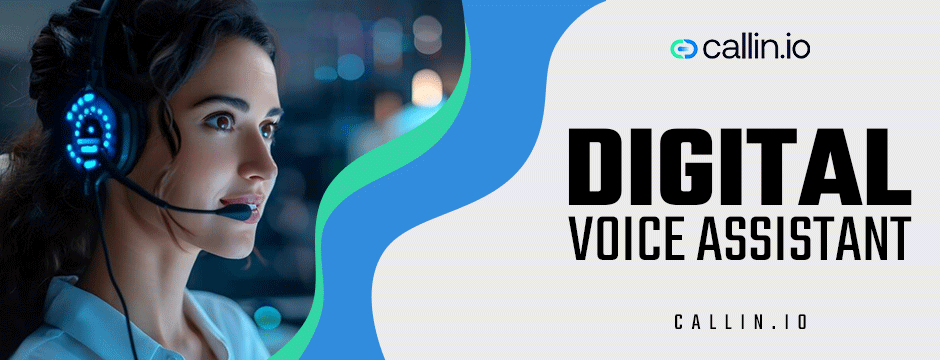Digital voice assistant have transformed daily life by simplifying tasks like managing schedules and controlling smart home devices through voice commands. They enhance convenience and are paving the way for a more interconnected future. Evolving from basic tools to sophisticated helpers, these assistants play crucial roles in tasks such as playing music and providing information. As they continue to advance, they are expected to further integrate into daily routines, reshaping how we interact with technology and improving overall efficiency and convenience in our lives.
Introduction to Virtual Voice Assistants
Digital voice activate assistants leverage artificial intelligence (AI) to interpret and respond to voice commands. Originally created for basic tasks such as answering questions and setting reminders, these assistants have evolved into sophisticated platforms capable of performing a wide range of functions. They can now assist with tasks like managing schedules, controlling smart home devices, playing music, providing weather updates, and even ordering products online. This evolution highlights their growing utility in enhancing convenience and efficiency in daily life, making them indispensable tools in the realm of modern technology.
Enhancing Efficiency and Productivity
Digital voice helpers streamline tasks and enhance productivity by allowing users to dictate emails, create shopping lists, and manage calendars with voice commands. This hands-free approach enables multitasking and eliminates the need for manual input, saving valuable time. Users can efficiently perform these tasks by simply speaking aloud, thereby increasing efficiency in daily routines. This convenience not only simplifies complex processes but also improves overall time management, making digital voice partners indispensable tools for modern living.
Simplifying Smart Home Management
Digital voice assistant have played a crucial role in advancing smart home technology. They act as central hubs for managing a range of smart devices like thermostats, lighting systems, and security cameras. Through simple voice commands, users can adjust settings, monitor activities, and stay updated at all times. This integration not only enhances home security but also improves overall comfort and convenience. By enabling seamless control over multiple devices from a single interface, they streamline daily tasks and contribute to a more efficient and connected living environment.

Entertainment and Information Access
Virtual voice assistants have made it easier for everyone to access information and entertainment. Users can ask for news updates, play podcasts, or stream music from almost anywhere using just their voice. This hands-free convenience not only makes leisure time more enjoyable but also keeps users up-to-date with what’s happening in the world. It’s like having a personal assistant who’s always ready to provide the latest news and keep users engaged with current trends and events, all with simple voice commands.
Voice Commerce and E-Commerce Integration
Voice commerce has revolutionized online shopping by allowing users to shop, track shipments, and reorder items using digital assistants. This integration makes shopping more convenient, enabling quick and efficient transactions through simple voice commands. It simplifies the process of browsing and purchasing goods, transforming how consumers interact with e-commerce platforms. By leveraging voice prompts, users can complete tasks such as checking out or managing their shopping lists hands-free, enhancing their overall shopping experience. This seamless integration of voice technology into daily routines underscores its potential to streamline and expedite transactions, marking a significant shift in the way people shop online.
Driving Innovation in Healthcare and Accessibility
In healthcare, digital voice assistant are used to enhance patient care and accessibility. They help schedule appointments and provide medical advice, serving as valuable resources for both patients and healthcare providers. These assistants also improve accessibility for people with disabilities by allowing them to access information and services through voice commands. This technology makes healthcare more efficient and inclusive, enabling easier communication and interaction between patients and healthcare professionals. As voice assistants continue to evolve, their role in healthcare is expected to expand, offering even more benefits in managing health-related tasks and improving overall patient experience.
Privacy and Security Considerations
Digital voice associate, despite their advantages, raises privacy and security concerns. These devices are always listening for activation commands, sparking debates about data collection and privacy violations. To address these issues, manufacturers are enhancing safeguards. They are implementing encryption and giving users more control over privacy settings. These measures aim to protect user data and alleviate concerns about unauthorized access and misuse. As the technology evolves, ongoing efforts to balance convenience with privacy protection will be crucial in maintaining user trust and advancing the responsible use of virtual voice assistants.
The Future of Digital Voice Activate Assistants
Looking ahead, digital voice helpers are set to advance significantly. With ongoing improvements in AI technology, natural language processing, and machine learning, they will become more capable and responsive. These assistants are poised to play crucial roles in education, customer service, and personalized healthcare. They will likely assist in tasks like tutoring students, handling customer queries more efficiently, and providing personalized medical advice. As their capabilities grow, they are expected to seamlessly integrate into various aspects of daily life, offering enhanced convenience and support across different sectors.
Ethical Considerations and Development Challenges
As digital voice associates become more common, it’s crucial to tackle ethical concerns and development challenges. Issues like bias in AI algorithms, ensuring inclusivity for all users, and responsibly handling voice data demand ongoing attention and cooperation among industry stakeholders. These assistants must be designed to serve diverse populations equitably and protect user privacy. Addressing these challenges involves developing transparent practices for data collection and usage, along with implementing safeguards against potential biases. By prioritizing ethical considerations and collaborative efforts, we can ensure that virtual voice assistants evolve responsibly and continue to benefit society while respecting individual rights and diversity.

Conclusion
Digital voice assistant are changing daily life in many ways. They boost productivity, make managing smart homes easier, and even innovate healthcare. But along with their benefits come important ethical questions. As these technologies grow, it’s crucial to understand their potential and tackle challenges like privacy concerns and fairness. By doing so, we can ensure these assistants continue to improve our lives while respecting everyone’s rights. They’re not just tools anymore, they’re shaping how we use technology and preparing us for a more connected future.
Transform your customer interactions with Callin IO—where seamless communication meets exceptional service effortlessly.

Helping businesses grow faster with AI. 🚀 At Callin.io, we make it easy for companies close more deals, engage customers more effectively, and scale their growth with smart AI voice assistants. Ready to transform your business with AI? 📅 Let’s talk!
Vincenzo Piccolo
Chief Executive Officer and Co Founder


